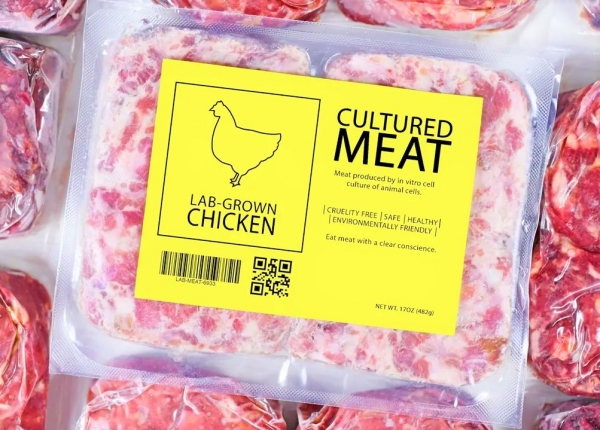
The Singapore Food Agency (SFA) approved the world’s first cultured meat sales on Dec. 2, 2020. The approved cultured meat is produced by a U.S.-based food technology start-up, Eat Just, which develops plant-based and lab-grown protein sources. Eat Just demonstrated that its lab-grown chicken went through rigorous consultation and review processes and that the analysis assured the safety and quality of the cultured chicken. The harvested lab-grown chicken met the standards of poultry meat, containing high protein, high monounsaturated fats, and a significantly cleaner microbiological content compared to conventional meat. Co-founder and CEO of Eat Just, Josh Tetrick, commented that “regulatory approval for (Eat Just’s) cultured meat will be the first of many in Singapore and countries around the globe.” The company plans to launch its product after the manufacturing process is scaled up to meet the demand.
Cultured meat or lab-grown meat is meat that is produced via cell culture without slaughtering animals. The cultured meat market is an emerging industry that aims to reduce the number of animal slaughter as well as to create a more sustainable and ethical global food system.
Lab-grown meat is made from tissue samples that can be acquired from living animals, cell banks, and fresh meat. Selected cell lines are placed in a petri dish and fed with a liquid growth medium. The cells then grow and proliferate in a bioreactor until they become cultured meat.
Research has shown that cultured meat production produces significantly smaller environmental impacts, such as land and water degradation and greenhouse gas emissions, compared to conventional meat production methods. David Welch, Director of Science and Technology of Good Food Institute, said that lab-grown beef results in “more than 95% reduction in required land, about 95% reduction in nutrient pollution runoff, and 80% reduction in climate change emissions compared to conventional beef.” In the case of chicken, lab-grown chicken can reduce “35% to 67% less land use and 70% less pollution compared to conventional chicken agriculture.”
Although cultured meat has huge potential as a sustainable and ethical food source, there are some setbacks that the cultured meat industry must overcome. The liquid growth medium, essential for cultivating cells, is expensive and therefore increases the price of cultured meat. Also, while “unstructured” lab-grown meat products such as burger patties are close to being commercially viable, realistic cuts of meat are still in the research phase as creating scaffolds that can mimic internal structures needs more research. There are concerns from the public and authorities about whether lab-grown meat is safe. U.S. Food and Drug Administration (FDA) spokesperson, Nathan Arnold, emphasized that every step of the process and the ingredients in the nutrient blend must be thoroughly evaluated.
A 2019 report by Barclays predicted that the global alternative meat market will be worth ten times more in just ten years. Cultured meat products are starting to surface in the market: Mosa Meat estimated its burgers to be available in the market as early as 2021. The SFA’s approval of lab-grown chicken is a significant moment for the cultured meat industry. The Good Food Institute Asia-Pacific’s managing director Elaine Siu stated, “this is a breakthrough that will have a rippling effect on the global cellular agriculture industry.”


